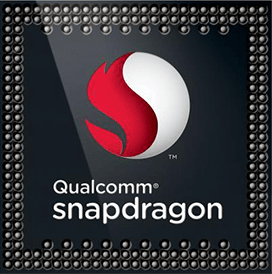
Qualcomm Snapdragon 730 Benchmark, Test and specs
Last updated:
The Qualcomm Snapdragon 730 has 8 CPU cores and can process 8 threads at the same time. The processor was presented in Q2/2019 and is based on the 2. Generation of the Qualcomm Snapdragon series. In the Geekbench 5 benchmark, the Qualcomm Snapdragon 730 achieved a result of 526 points (single-core) or 1,652 points (multi-core).

| Name: | Qualcomm Snapdragon 730 |
|---|---|
| Family: | Qualcomm Snapdragon (102) |
| CPU group: | Qualcomm Snapdragon 730 (3) |
| Architecture: | Kryo 470 Gold/475 Silver |
| Segment: | Mobile |
| Generation: | 2 |
| Predecessor: | -- |
| Successor: | -- |
CPU Cores and Base Frequency
The Qualcomm Snapdragon 730 has 8 cores. The clock frequency of the Qualcomm Snapdragon 730 is 2.20 GHz. An initial performance assessment can be made using the number of CPU cores.
| CPU Cores / Threads: | 8 / 8 |
|---|---|
| Core architecture: | hybrid (big.LITTLE) |
| A-Core: | 2x Kryo 470 Gold |
| B-Core: | 6x Kryo 470 Silver |
| Hyperthreading / SMT: | No |
|---|---|
| Overclocking: | No |
| A-Core Frequency: | 2.20 GHz |
| B-Core Frequency: | 1.80 GHz |
Artificial Intelligence and Machine Learning
Processors with the support of artificial intelligence (AI) and machine learning (ML) can process many calculations, especially audio, image and video processing, much faster than classic processors. Algorithms for ML improve their performance the more data they have collected via software. ML tasks can be processed up to 10,000 times faster than with a classic processor.
| AI hardware: | Qualcomm AI engine |
|---|---|
| AI specifications: | Hexagon 688 @ 3.6 TOPS |
Internal Graphics
The Qualcomm Snapdragon 730 has an integrated graphics that the system can use to efficiently play back videos. The Qualcomm Snapdragon 730 has the Qualcomm Adreno 618 installed, which has -- streaming multiprocessors (128 shaders).
| GPU name: | Qualcomm Adreno 618 |
|---|---|
| GPU frequency: | 0.70 GHz |
| GPU (Turbo): | No turbo |
| Compute units: | -- |
| Shader: | 128 |
| Hardware Raytracing: | No |
| Release date: | Q2/2019 |
| Max. displays: | 2 |
|---|---|
| Generation: | 6 |
| Direct X: | 12.1 |
| Technology: | 14 nm |
| Max. GPU Memory: | 4 GB |
| Frame Generation: | No |
Hardware codec support
Processors with integrated graphics can process video codecs faster. Support for modern codecs can significantly increase system efficiency during video playback.
| h265 / HEVC (8 bit): | Decode |
|---|---|
| h265 / HEVC (10 bit): | Decode |
| h264: | Decode / Encode |
| VP8: | Decode |
| VP9: | Decode |
| AV1: | No |
|---|---|
| AVC: | Decode |
| VC-1: | Decode |
| JPEG: | Decode / Encode |
Memory & PCIeThe Qualcomm Snapdragon 730 supports a maximum of 8 GB memory. Depending on the mainboard, the processor can use a maximum of 2 (Dual Channel) memory channels. This results in a maximum bandwidth of the main memory of 14.9 GB/s. |
|
| Memory type: | Memory bandwidth: |
|---|---|
| LPDDR4X-3733 | 14.9 GB/s |
| Max. Memory: | 8 GB |
| Memory channels: | 2 (Dual Channel) |
| ECC: | No |
| PCIe: | |
| PCIe Bandwidth: | -- |
Thermal ManagementThe Qualcomm Snapdragon 730 has a TDP of . Based on the TDP, the system manufacturer can and must adapt the cooling solution to the processor. |
|
|---|---|
| TDP (PL1 / PBP): | |
| TDP (PL2): | -- |
| TDP up: | -- |
| TDP down: | -- |
| Tjunction max.: | -- |
Technical details
Modern production reduces the waste heat of a processor and increases its efficiency. The Qualcomm Snapdragon 730 is made in 8 nm and has 0.00 MB cache.
| Technology: | 8 nm |
|---|---|
| Chip design: | Chiplet |
| Socket: | -- |
| L2-Cache: | -- |
| L3-Cache: | -- |
| AES-NI: | No |
| Operating systems: | Android |
| Virtualization: | None |
|---|---|
| Instruction set (ISA): | Armv8-A (64 bit) |
| ISA extensions: | -- |
| Release date: | Q2/2019 |
| Release price: | -- |
| Part Number: | SM7150-AA |
| Documents: | Technical data sheet |
Rate this processor
Benchmark results

The benchmark results for the Qualcomm Snapdragon 730 have been carefully checked by us. We only publish benchmark results that have been created by us or that have been submitted by a visitor and then checked by a team member. All results are based on and fullfill our benchmark guidelines.
Screenshots:
Screenshots:
Geekbench 5, 64bit (Single-Core)
Geekbench 5 is a cross plattform benchmark that heavily uses the systems memory. A fast memory will push the result a lot. The single-core test only uses one CPU core, the amount of cores or hyperthreading ability doesn't count.

|
Intel Core M-5Y10
2C 4T @ 2.00 GHz |
||

|
Intel Core M-5Y10a
2C 4T @ 2.00 GHz |
||

|
Intel Core M-5Y10c
2C 4T @ 2.00 GHz |
||
|
|
Qualcomm Snapdragon 730
8C 8T @ 2.20 GHz |
||

|
Qualcomm Snapdragon 730G
8C 8T @ 2.20 GHz |
||

|
AMD A10-7870K
4C 4T @ 4.10 GHz |
||

|
Intel Pentium Gold 4415U
2C 4T @ 2.30 GHz |
||
Geekbench 5, 64bit (Multi-Core)
Geekbench 5 is a cross plattform benchmark that heavily uses the systems memory. A fast memory will push the result a lot. The multi-core test involves all CPU cores and taks a big advantage of hyperthreading.

|
Intel Core i5-6360U
2C 4T @ 3.00 GHz |
||

|
Intel Core i3-4360T
2C 4T @ 3.20 GHz |
||

|
Intel Pentium Silver J5005
4C 4T @ 2.70 GHz |
||
|
|
Qualcomm Snapdragon 730
8C 8T @ 2.20 GHz |
||

|
Qualcomm Snapdragon 730G
8C 8T @ 2.20 GHz |
||

|
Intel Core i5-5257U
2C 4T @ 3.10 GHz |
||

|
Intel Core i7-3540M
2C 4T @ 3.00 GHz |
||
Geekbench 6 (Single-Core)
Geekbench 6 is a benchmark for modern computers, notebooks and smartphones. What is new is an optimized utilization of newer CPU architectures, e.g. based on the big.LITTLE concept and combining CPU cores of different sizes. The single-core benchmark only evaluates the performance of the fastest CPU core, the number of CPU cores in a processor is irrelevant here.

|
Qualcomm Snapdragon 675
8C 8T @ 2.00 GHz |
||

|
Qualcomm Snapdragon 730G
8C 8T @ 2.20 GHz |
||

|
Intel Core i7-2600K
4C 8T @ 3.80 GHz |
||
|
|
Qualcomm Snapdragon 730
8C 8T @ 2.20 GHz |
||

|
AMD A10-9700
4C 4T @ 3.80 GHz |
||

|
Intel Core i5-3475S
4C 4T @ 3.60 GHz |
||

|
Intel Core i7-2600S
4C 8T @ 3.80 GHz |
||
Geekbench 6 (Multi-Core)
Geekbench 6 is a benchmark for modern computers, notebooks and smartphones. What is new is an optimized utilization of newer CPU architectures, e.g. based on the big.LITTLE concept and combining CPU cores of different sizes. The multi-core benchmark evaluates the performance of all of the processor's CPU cores. Virtual thread improvements such as AMD SMT or Intel's Hyper-Threading have a positive impact on the benchmark result.

|
AMD FX-6300
6C 6T @ 4.10 GHz |
||

|
Intel Core i3-5157U
2C 4T @ 2.50 GHz |
||

|
Intel Core i5-2300
4C 4T @ 2.80 GHz |
||
|
|
Qualcomm Snapdragon 730
8C 8T @ 2.20 GHz |
||

|
Intel Core i5-2405S
4C 4T @ 2.50 GHz |
||

|
Intel Core i7-4500U
2C 4T @ 2.60 GHz |
||

|
Intel Core i5-2500T
4C 4T @ 2.30 GHz |
||
iGPU - FP32 Performance (Single-precision GFLOPS)
The theoretical computing performance of the internal graphics unit of the processor with simple accuracy (32 bit) in GFLOPS. GFLOPS indicates how many billion floating point operations the iGPU can perform per second.

|
Intel Celeron 5205U
Intel UHD Graphics (Comet Lake) @ 0.90 GHz |
||

|
Intel Celeron N5105
Intel UHD Graphics 24 EUs (Jasper Lake) @ 0.90 GHz |
||

|
Qualcomm Snapdragon 670
Qualcomm Adreno 615 @ 0.70 GHz |
||
|
|
Qualcomm Snapdragon 730
Qualcomm Adreno 618 @ 0.70 GHz |
||

|
Qualcomm Snapdragon 7c Gen 2
Qualcomm Adreno 618 @ 0.70 GHz |
||

|
Intel Core i5-11260H
Intel UHD Graphics 11th Gen (16 EU) @ 1.40 GHz |
||

|
Intel Core i3-11100B
Intel UHD Graphics 11th Gen (16 EU) @ 1.40 GHz |
||
AnTuTu 8 Benchmark
The AnTuTu 8 Benchmark measures the performance of a SoC. AnTuTu benchmarks the CPU, GPU, Memory as well as the UX (User Experience) by simulating browser and app usage. AnTuTu can benchmark any ARM CPU that runs under Android or iOS. Devices may not be directly compareable if the benchmark has been performed under different operating systems.
In the AnTuTu 8 benchmark, the single-core performance of a processor is only slightly weighted. The evaluation consists of the multi-core performance of the processor, the speed of the RAM and the performance of the internal graphics.
In the AnTuTu 8 benchmark, the single-core performance of a processor is only slightly weighted. The evaluation consists of the multi-core performance of the processor, the speed of the RAM and the performance of the internal graphics.

|
MediaTek Dimensity 720
8C 8T @ 2.00 GHz |
||

|
MediaTek Dimensity 7200
8C 8T @ 2.80 GHz |
||

|
MediaTek Helio G90T
8C 8T @ 2.05 GHz |
||
|
|
Qualcomm Snapdragon 730
8C 8T @ 2.20 GHz |
||

|
Qualcomm Snapdragon 730G
8C 8T @ 2.20 GHz |
||

|
Qualcomm Snapdragon 732G
8C 8T @ 2.30 GHz |
||

|
Qualcomm Snapdragon 835
8C 8T @ 2.45 GHz |
||
Performance for Artificial Intelligence (AI) and Machine Learning (ML)
Processors with the support of artificial intelligence (AI) and machine learning (ML) can process many calculations, especially audio, image and video processing, much faster than classic processors. The performance is given in the number (trillions) of arithmetic operations per second (TOPS).

|
MediaTek Dimensity 1000C
8C 8T @ 2.00 GHz |
||

|
MediaTek Dimensity 1000L
8C 8T @ 2.20 GHz |
||

|
Google Tensor G2
8C 8T @ 2.85 GHz |
||
|
|
Qualcomm Snapdragon 730
8C 8T @ 2.20 GHz |
||

|
Qualcomm Snapdragon 732G
8C 8T @ 2.30 GHz |
||

|
Qualcomm Snapdragon 730G
8C 8T @ 2.20 GHz |
||

|
Qualcomm Snapdragon 680 4G
8C 8T @ 2.40 GHz |
||
Benchmarks

Geekbench 5 (SC)
2,488 entries
2,488 entries

Geekbench 5 (MC)
2,461 entries
2,461 entries

Geekbench 6 (SC)
1,754 entries
1,754 entries

Geekbench 6 (MC)
1,702 entries
1,702 entries

FP32 SP (iGPU)
2,026 entries
2,026 entries

AnTuTu 8 Benchmark
118 entries
118 entries

AI / ML Performance
116 entries
116 entries
Popular comparisons
back to index






